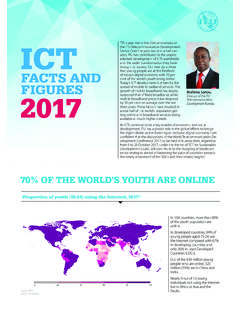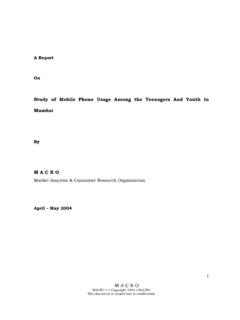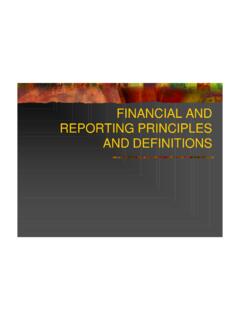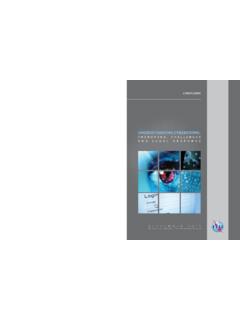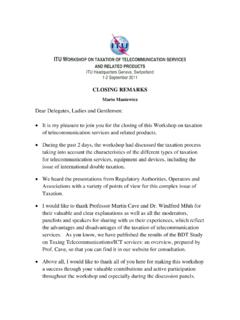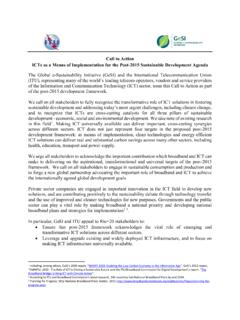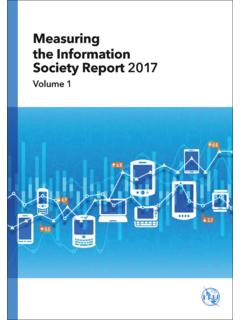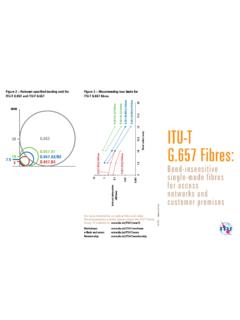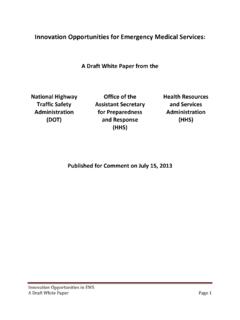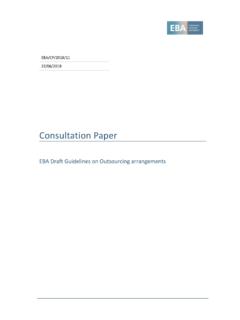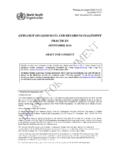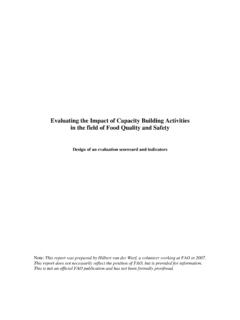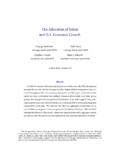Transcription of Cybersecurity: The Role and Responsibilities of an ...
1 draft October 2009. draft background paper cybersecurity : The Role and Responsibilities of an Effective Regulator 9th ITU Global Symposium for Regulators Beirut, Lebanon November 2009. cybersecurity : THE ROLE AND Responsibilities OF AN EFFECTIVE REGULATOR. Acknowledgements This draft background paper on cybersecurity : The Role and Responsibilities of an Effective Regulator, was commissioned by the ITU Telecommunication Development Sector s ICT. Applications and cybersecurity Division and Regulatory and Market Environment Division. The paper was prepared by Eric Lie, Rory Macmillan and Richard Keck of Macmillan Keck (Attorneys and Solicitors), for the 9th ITU Global Symposium for Regulators held in Beirut, Lebanon (10-12.)
2 November 2009). The background paper on cybersecurity : The Role and Responsibilities of an Effective Regulator is available online at: All rights reserved. No part of this publication may be reproduced in any form or by any means without written permission from ITU. Denominations and classifications employed in this publication do not imply any opinion concerning the legal or other status of any territory or any endorsement or acceptance of any boundary. Where the designation "country" appears in this publication, it covers countries and territories. This document has been issued without formal editing. For further information on the paper , please contact: ICT Applications and cybersecurity Division (CYB).
3 Policies and Strategies Department Bureau for Telecommunication Development International Telecommunication Union Place des Nations 1211 Geneva 20. Switzerland Telephone: +41 22 730 5825/6052. Fax: +41 22 730 5484. E-mail: Website: Disclaimer The opinions expressed in this report are those of the author(s) and do not necessarily represent the views of the International Telecommunication Union (ITU) or its membership. The designations employed and the presentation of material, including maps, do not imply the expression of any opinion whatsoever on the part of ITU concerning the legal status of any country, territory, city or area, or concerning the delimitations of its frontiers or boundaries.
4 Mention and references to specific countries, companies, products, initiatives or guidelines do not in any way imply that they are endorsed or recommended by ITU in preference to others of a similar nature that are not mentioned. ITU 2009. 2|Page cybersecurity : THE ROLE AND Responsibilities OF AN EFFECTIVE REGULATOR. Table of Contents 1 Introduction .. 4. What is cybersecurity ? .. 4. What is in this paper ? .. 6. Part I: cybersecurity roles and Responsibilities - An Overview 2 cybersecurity and the public 7. Role and responsibility of government .. 7. Policy-making (and establishing a national cybersecurity strategy) .. 8. Legal Measures .. 8. Organizational Structures.
5 9. Capacity Building .. 11. Public-private sector cooperation and industry regulation .. 11. Delegating cybersecurity Responsibilities among government institutions .. 12. 3 cybersecurity and the private sector .. 15. The role of the private sector .. 15. cybersecurity and the bottom line .. 15. 4 cybersecurity and the individual .. 16. The role of the individual .. 16. The role of civil society .. 16. 5 cybersecurity and international cooperation .. 17. Part II: The Evolving Role of the Regulator in the Area of Information and Network Security 6 The role of the regulator .. 19. The core duties of the regulator .. 19. The evolving role of the regulator.
6 19. 7 The role of the regulator in cybersecurity .. 20. Cross-cutting competencies and prerequisites .. 20. Institutional maturity .. 20. Engagement of the private sector .. 21. Technical and industry expertise .. 21. Mandate and jurisdiction .. 21. Appropriate resourcing .. 22. Engagement in international cooperation .. 23. 24. Legal measures .. 27. Organizational structures .. 29. Institutional organization and coordination .. 29. Incident management and cybersecurity readiness assessment .. 31. Capacity 33. Private sector cooperation and industry regulation .. 35. Part III: Conclusions and Recommendations 8 The ICT/telecom regulator - a key player in a national team.
7 39. 3|Page cybersecurity : THE ROLE AND Responsibilities OF AN EFFECTIVE REGULATOR. 1 Introduction Information Communication Technologies (ICTs) are rapidly evolving while at the same time their usage is expanding. Today, Internet and mobile services have become an indispensible part of daily life for many around the world. While the benefits of ICT adoption have multiplied, the risks and dangers associated with their use have also similarly increased. Cybercrimes such as phishing, spam, computer-related fraud and other similar offences are rapidly increasing and evolving in step with the development and adoption of new ICT. services. In response to this situation, an increased emphasis on enhancing cybersecurity is being placed in all countries.
8 While cybersecurity is a shared responsibility of government, the private sector and individuals alike, only national governments are in a position to lead a collective national cybersecurity effort. Only when governments establish common objectives, define ways to achieve them and clarify the roles and Responsibilities of stakeholders can cybersecurity be comprehensively addressed. As an integral part of government, ICT/telecom regulators play a key role in the national cybersecurity effort of many countries. Their broad competencies in the ICT sector, their familiarity with the ICT industry and their expertise in ICT networks and infrastructure have naturally positioned them as key players in the field of cybersecurity .
9 However, given the constantly changing ICT environment and the dynamics of cybersecurity , the role of the regulator in this area has to evolve and adapt. Institutional improvements and other changes may be necessary to ensure that regulators remain relevant in this dynamic environment. It is in this context that this paper examines and discusses the roles and Responsibilities of regulators in the field of cybersecurity . What is cybersecurity ? In a discussion of security in the context of ICT, a number of terms are often used to describe different aspects of a common concept. In many instances, terms like cybersecurity and Critical Information Infrastructure Protection (CIIP) are used interchangeably, while in other cases they are used to describe different concepts.
10 In any discussion of cybersecurity , it is useful to first understand the following terms: cybersecurity , critical infrastructure (CI), critical information infrastructure (CII), critical infrastructure protection (CIP), critical information infrastructure protection (CIIP) and non- critical While the exact definitions may vary slightly from country to country, CI typically encompass the vital systems, services and functions whose disruption or destruction would have a debilitating impact on public health and safety, economic activity, and/or national security. CI. includes physical elements (such as physical infrastructure and buildings) and virtual elements (such as networks and data).
